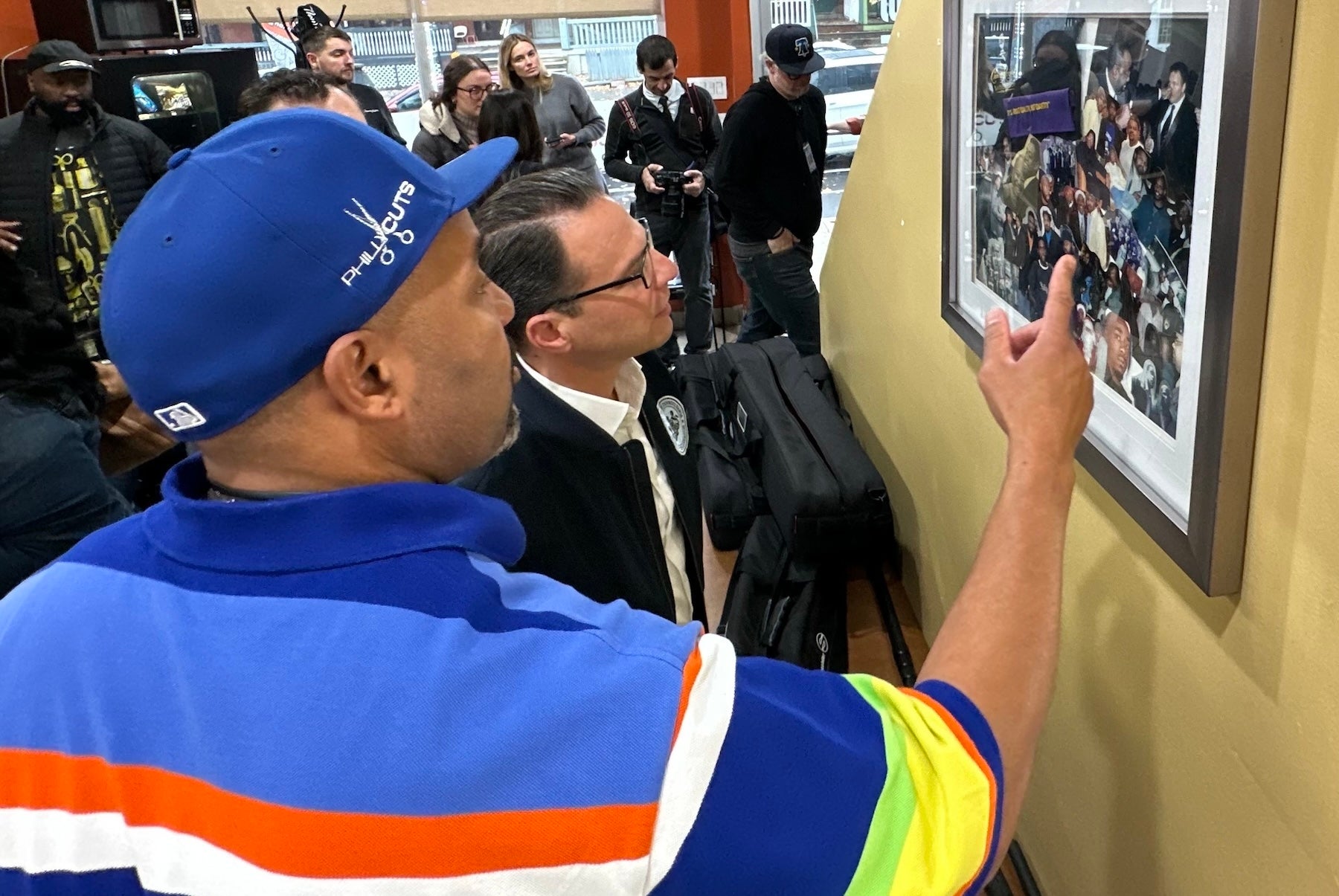Entertainment
Warner Bros. Discovery takes $9-billion write-down from TV networks amid struggles

Warner Bros. Discovery’s rough ride continued through its most recent quarter, with the company taking a $9-billion write-down to reflect the diminishing value of its struggling television channels.
The David Zaslav-led media company posted disappointing second-quarter earnings Wednesday, sending its shares tumbling in after-hours on Wall Street. The company continues to grapple with cost cuts to rein in its $38 billion in debt, a legacy of its 2022 takeover of the larger WarnerMedia from AT&T.
Wednesday’s earnings report, along with the massive write-down, brought into sharp focus the rapid decline of the cable television business as viewers and advertisers shift to streaming. Wall Street’s reception of its quarterly results became the latest setback for the company, which is grappling with the expected loss of its NBA contract for its TNT cable channel after next season.
The New York company generated revenue of $9.7 billion, which marked a 6% decline compared with the same quarter a year earlier.
Adjusted earnings before interest, taxes, depreciation and amortization fell 16% to nearly $1.8 billion compared to $2.1 billion in the year-earlier period. Last year, the company spent less on programming due to the Writers Guild of America strike. The company also introduced a popular Harry Potter video game, “Hogwarts Legacy” last year, while this year’s “Suicide Squad” game missed its mark.
But the immediate takeaway was the company’s staggering $10-billion net loss, which it said included the $9.1 billion impairment charge from its TV networks division as well as $2.1 billion in “acquisition-related amortization of intangibles and restructuring expenses.”
Warner Bros. Discovery executives told analysts that, after a rigorous review, they concluded that the company’s networks were worth $9 billion less than they were just two years ago. The company owns some of the industry’s best-known traditional channels, including CNN, TNT, HGTV, Food Network, Animal Planet and TLC.
The potential loss of TNT’s NBA contract prompted the company to conduct a review of its assets, Chief Financial Officer Gunnar Wiedenfels said.
“There is no one factor that is driving this impairment, Wiedenfels said. “It’s really a full reevaluation.”
The company blamed continued softness in advertising revenue coming to its linear television business. It also noted the “uncertainty related to affiliate and sports rights renewals, including the NBA.”
The earnings come less than two weeks after Warner Bros. Discovery filed a breach of contract lawsuit against the NBA, asking a judge to prohibit the league from awarding a television contract to Amazon Prime Video.
The suit, which was filed July 26 in New York Supreme Court, alleges that the NBA breached Turner Broadcasting’s current deal by allegedly refusing to honor the cable programmer’s rights to match an offer from Amazon for the contract period that begins with the 2025-26 season. In its lawsuit, the company underscored the magnitude of the loss of the sport it has broadcast since 1989.
“NBA telecast rights are a unique asset that cannot be replaced,” the company said in its lawsuit.
Warner Bros. Discovery failed to reach an agreement with the NBA during its exclusive negotiation period earlier this spring. Last month, the league announced that it had bypassed Turner, while striking deals with Walt Disney Co.’s ESPN, NBCUniversal and Amazon. The NBA is expected to respond to Turner’s lawsuit later this month.
The league has said the lawsuit lacks merit.
On the call with analysts, Zaslav declined to discuss the lawsuit, saying the matter was now in the hands of the lawyers.
“The judge will decide, and off we’ll go,” Zaslav said.
But the expected loss of the NBA contract has raised concerns among investors and analysts that Warner Bros. Discovery will not have the programming heft it needs to compete in the media landscape with better-resourced rivals.
Bank of America analyst Jessica Reif Ehrlich asked a pointed question: whether Warner Bros. Discovery’s streaming growth would be enough to offset the declines in the traditional TV business.
“There is no doubt to us as a management team that the answer to that question is ‘yes,’” Wiedenfels said. “We believe there is tremendous upside opportunity both in the direct-to-consumer business and studio business. … We have a strong plan that supports this.”
But Wiedenfels added that he couldn’t “perfectly predict” when the company’s turn-around efforts would take hold.
“There’s been talk about recovery… and it hasn’t really happened,” he said. “It is what it is, and we are managing it the best that we can.”
Zaslav interrupted Wiedenfels to say that key company executives have an “attack plan meeting every week — all hands on.” The quality of upcoming programming gives the company confidence that it will grow its streaming business and profits, he said.
Global direct-to-consumer subscribers grew to 103.3 million by the end of the quarter, which was boosted by the second season of HBO’s “House of the Dragon.” The company said its ongoing European rollout of streaming service Max was successful, with the offering now available in 65 countries and territories.
JB Perrette said, chief of Warner Bros. Discovery’s Global Streaming and Games, told analysts, “We feel great about the content slate, which is clearly a driver for us.”
The company said it repaid $1.8 billion in debt during the second quarter. It ended the April through June period with $3.6 billion in cash on hand.
The company has slashed its workforce. It disclosed nearly 1,000 additional job cuts late last month.
“The market conditions within the traditional business are tough,” Zaslav said. “But we feel good about where we are … the No. 1 priority is to run this company as effectively as possible.”










